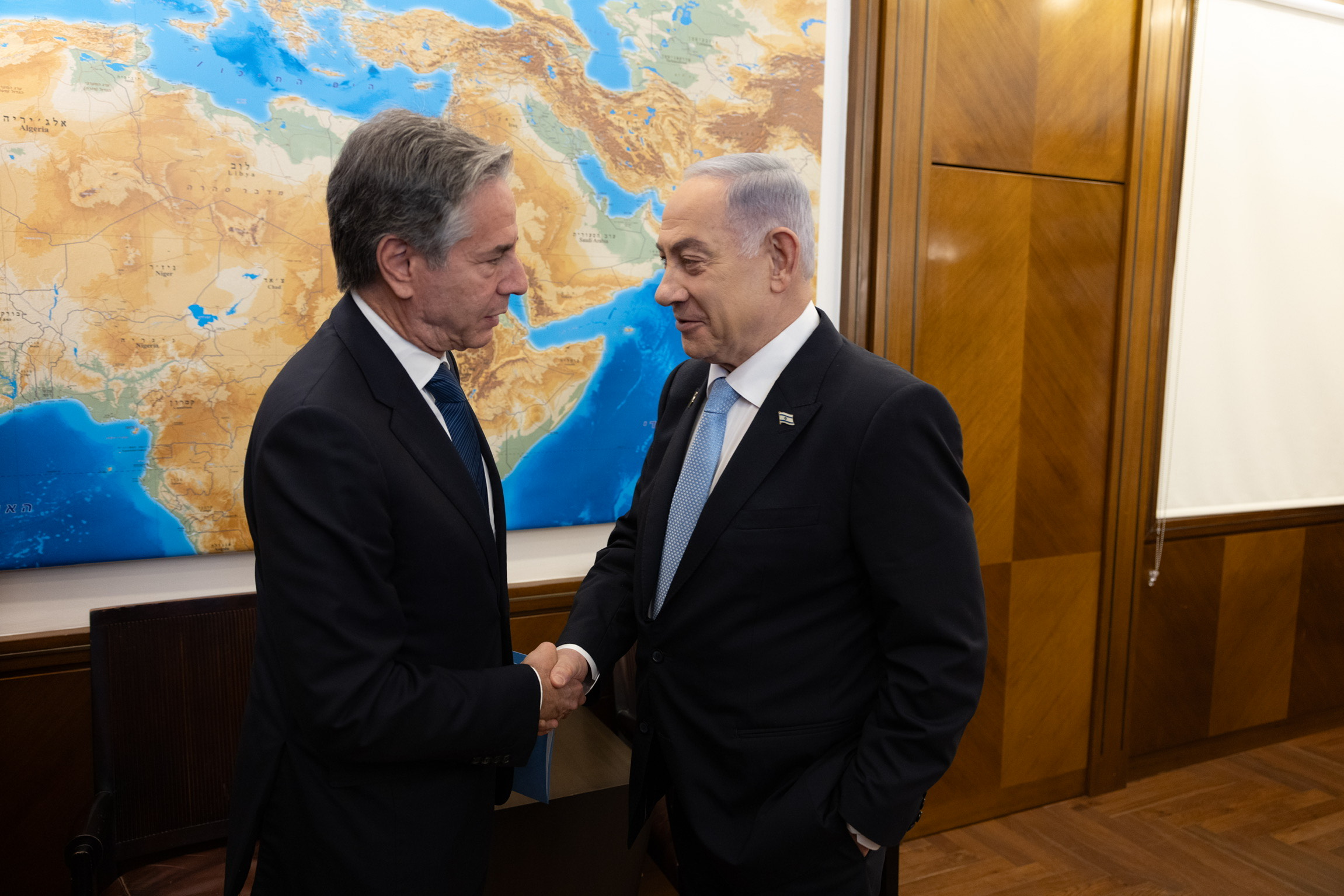
Trip Itinerary
- Last week, U.S. Secretary of State Antony Blinken concluded a week-long trip to the Middle East, which included visits to Israel, Saudi Arabia, and Qatar. The visit, prompted by Israel’s killing of Hamas military head Yahya Sinwar, aimed to revive stalled ceasefire negotiations and explore long-term plans for Palestinian governance, reconstruction, and regional security.
Details of the Talks
- During meetings in Tel Aviv, Blinken raised concerns over Israel’s military operations in northern Gaza and urged Israel to disavow reported plans targeting civilians there. He also criticized the limited aid delivery to Gazans, following up on a letter sent jointly with U.S. Secretary of Defence Lloyd Austin that set a 30-day timeline to improve humanitarian conditions.
- Blinken also stressed the U.S. position that the conflict must end to bring home the remaining hostages, encouraging respect for the Blue Line in the conflict in Lebanon while reinforcing American commitment to Israeli security.
- In Riyadh, Blinken met with Saudi Crown Prince Mohammed bin Salman to discuss common efforts to end the conflicts in the region and establish greater security and stability. The leaders reviewed strategies for diplomatic engagement and emphasized the need to bring home hostages and begin rebuilding in Gaza.
- Blinken met with Qatari Emir Sheikh Tamim bin Hamad Al Thani in Doha. They expressed enthusiasm for renewed talks on achieving a ceasefire in Gaza and shared views on ending the conflict in Lebanon.
- While in Qatar, Blinken announced an additional $135 million in humanitarian aid for Gaza.
Restarting Negotiations
- Over the weekend, CIA Director Bill Burns and Mossad chief David Barnea resumed ceasefire talks in Qatar, the first such discussions since they previously broke down in August. Hamas did not participate, but Qatari officials have “reengaged” with Hamas leaders to encourage them to return to ceasefire negotiations.
- These talks came in the wake of multiple statements from Blinken during his trip confirming that the death of Sinwar represented a new opening for discussions.
- There were public statements of intransigence from both Hamas and Israel following the negotiations, as both accused the other of being “unwilling to negotiate.”
- However, Israeli Defense Minister Yoav Gallant acknowledged that “painful compromises are required,” admitting that Israel will be unlikely to accomplish their goals with military action alone.
(Banner image: U.S. Department of State)

